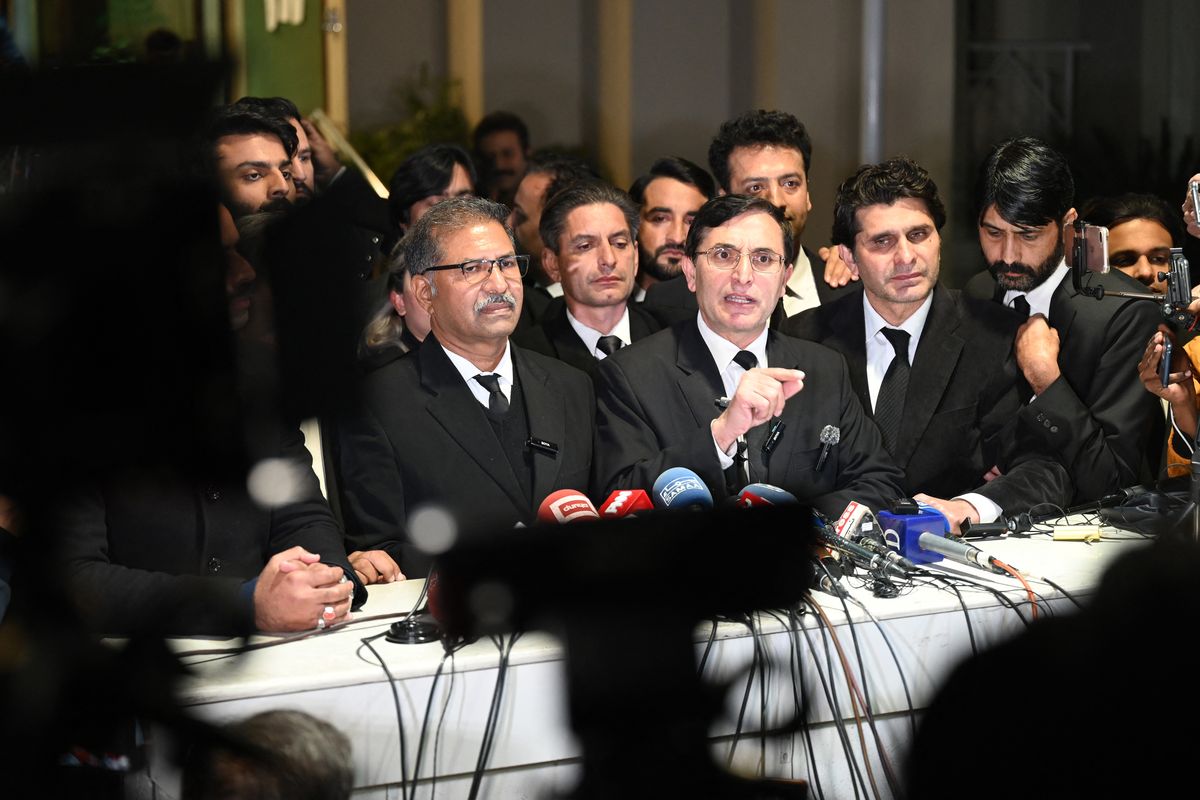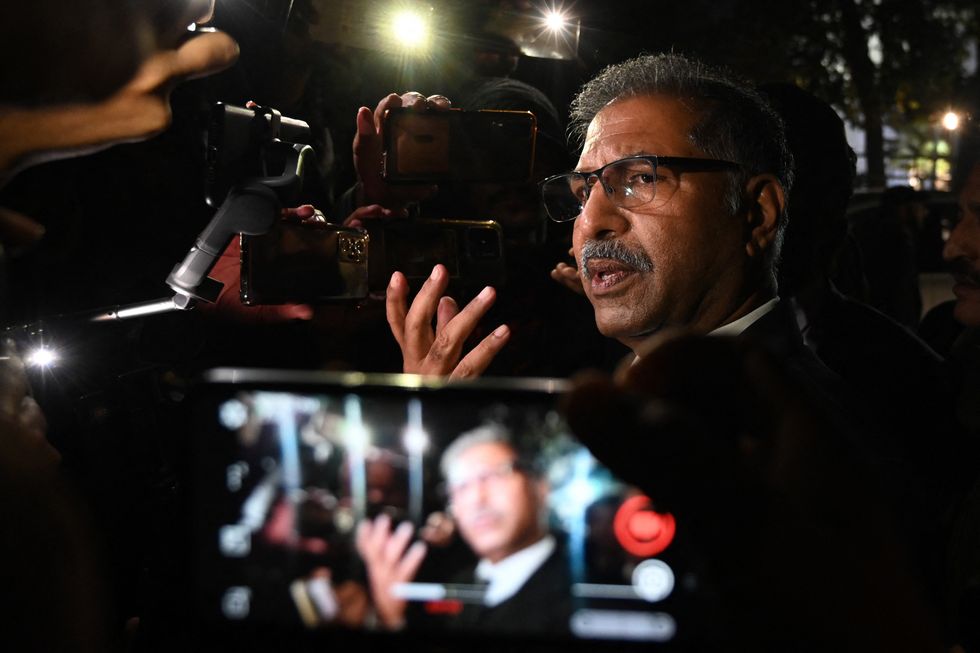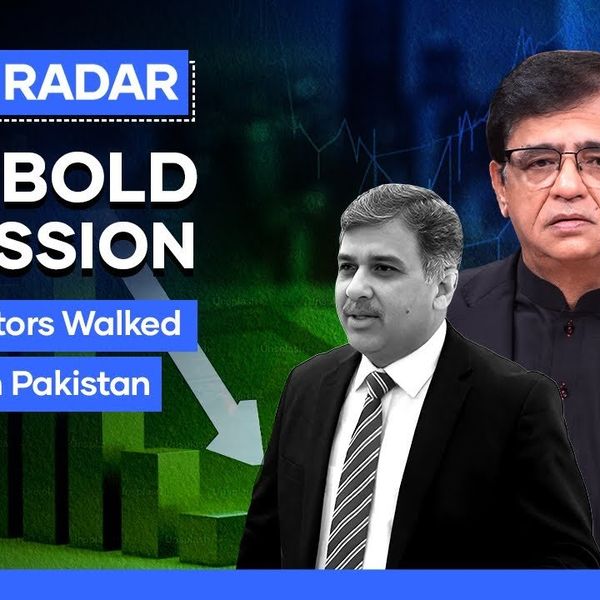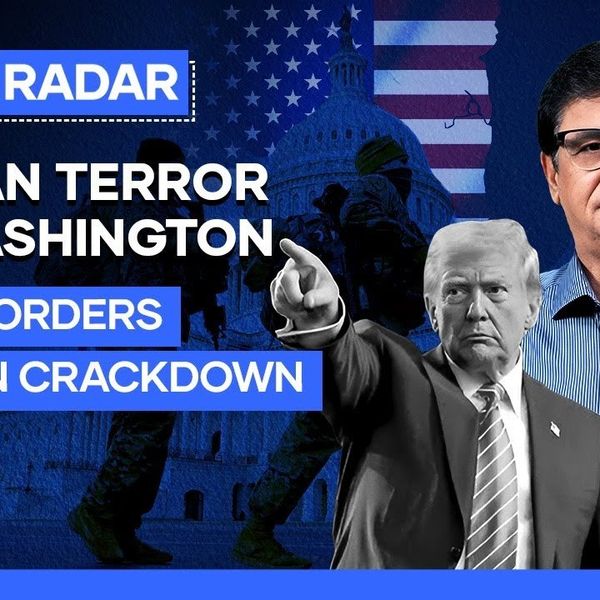Is it always the courts? Unpacking missteps of Pakistan ex-PM Imran Khan’s party
PTI has faced setbacks on multiple legal fronts as infighting complicates matters further

Aamir Abbasi
Editor, Islamabad
Aamir; a journalist with 15 years of experience, working in Newspaper, TV and Digital Media. Worked in Field, covered Big Legal Constitutional and Political Events in Pakistan since 2009 with Pakistan’s Top Media Organizations. Graduate of Quaid I Azam University Islamabad.

Pakistan Tehreek-e-Insaf (PTI) party's chief Gohar Khan (3rd R) and legal team members speak to media outside the Supreme Court building after the election symbol verdict in Islamabad on January 13, 2024.
AFP
PTI leadership allowed conflicting legal teams and contradictory court positions
Failed to include crucial documents in court submissions
Did not file appeals when initial petitions were rejected
Pakistan Tehreek-e-Insaf (PTI), the country's largest opposition party, faces over 200 cases against its top leadership and major setbacks, including losing its election symbol and reserved seats, amid internal legal conflicts and strategic missteps.
The party's legal challenges came into sharp focus recently when the Supreme Court's Justice Jamal Khan Mandokhail reprimanded PTI lawyer Latif Khosa while granting bail to party leader Imtiaz Sheikh in a May 9, 2023 riots case.
"Mr. Khosa, you have not made the most important document [Supplementary Challan] part of the record," Justice Mandokhail observed.
"You should fight your cases professionally, not politically. Mistakes are your own and you blame the courts. You received relief from the Supreme Court within a matter of minutes," he added.
Pattern of legal setbacks
The pattern of legal setbacks began with the party's 2023 intra-party elections case.
According to the Election Act 2017, PTI was required to hold these elections in 2020. After delays attributed to the COVID-19 pandemic, the elections were postponed to June 2022, but PTI failed to conduct them until December 2023.
The Election Commission of Pakistan (ECP) subsequently declared the elections held illegal and deemed the party ineligible for its election symbol, a decision later upheld by the Supreme Court. The decision forced the party to field its candidates as independents in the Feb. 8, general elections.

Salman Akram Raja, a senior PTI lawyer and election candidate for NA-128 Lahore approached the apex court seeking recognition as a PTI ticket holder rather than an independent candidate.
However, when the registrar's office raised objections to his petition, no appeal was filed. Both the ECP and Lahore High Court had previously rejected his plea.
Following the February 2024 elections, PTI-backed independents strategically decided to join the Sunni Ittehad Council (SIC), a party without parliamentary representation. This move backfired when the Election Commission of Pakistan (ECP) refused to allocate reserved seats to the SIC, citing the legal requirement of prior parliamentary representation for such claims.
While PTI alleged widespread rigging in the Feb. 8 elections, claiming victory in 170 National Assembly seats instead of 90, FAFEN reports indicate that only 31 election petitions were filed by PTI-backed candidates in tribunals.
The party's decision to keep eight MNAs as independents while 80 joined SIC further complicated matters. Some independent MNAs, including Zahoor Qureshi, Aurangzeb Khichi, Usman Ali, and Mubarak Zeb, even voted in favor of the government's 26th Amendment despite strong party opposition.
Internal discord
Infighting has significantly impacted PTI's legal strategy.
Senior Advocate Hamid Khan, who heads the Professional Group of lawyers, has publicly clashed with colleagues Sher Afzal Marwat and Fawad Chaudhary.
The tension has spilled into leadership decisions, as seen when Secretary General Salman Akram Raja's attempt to remove lawyer Faisal Chaudhary from the legal team was overruled by Imran Khan.
Additionally, the party's legal representation has become increasingly fragmented, with a separate team of non-political lawyers led by Barrister Salman Safdar handling cases for Khan.
During a recent Supreme Court hearing on Election Tribunal cases, the lack of coordination became evident when lawyer Niazullah Niazi objected to the presence of former Chief Justice Qazi Faez Isa on the bench, only for Salman Akram Raja to later withdraw the objection.
PTI's counter-strategy
According to PTI lawyer Naeem Haider Panjutha, the party is facing over 200 cases against its leadership.
"We are fighting these cases on all forums, which creates some confusion, but our professional counter-strategy is yielding results as cases are quashed every week," he explained.
However, he acknowledged that "arrests, abductions, raids, and other operations by the police and administration in Islamabad and Punjab are severely damaging our political and legal strategy. Nevertheless, we remain committed to achieving real independence."










Comments
See what people are discussing